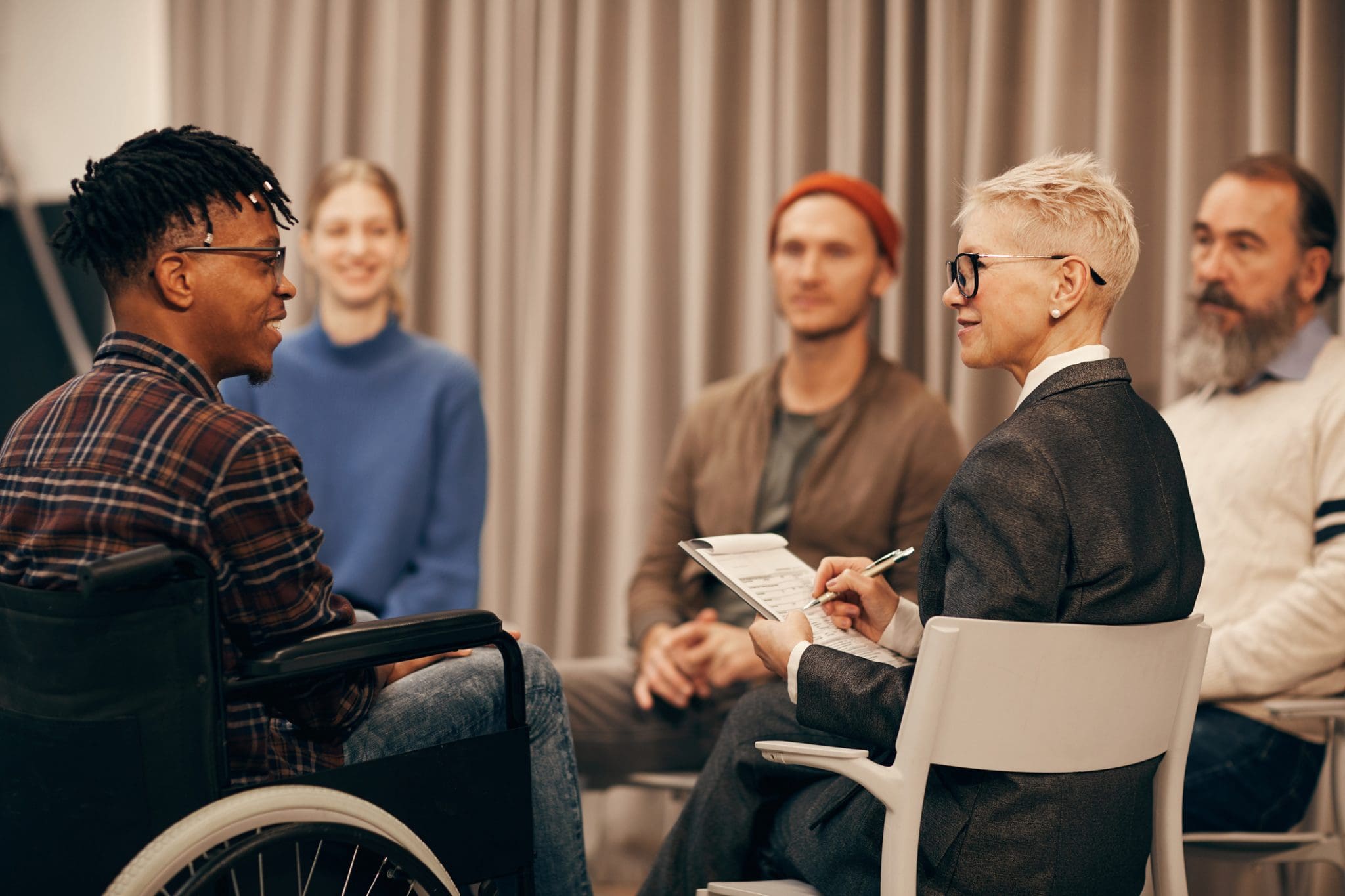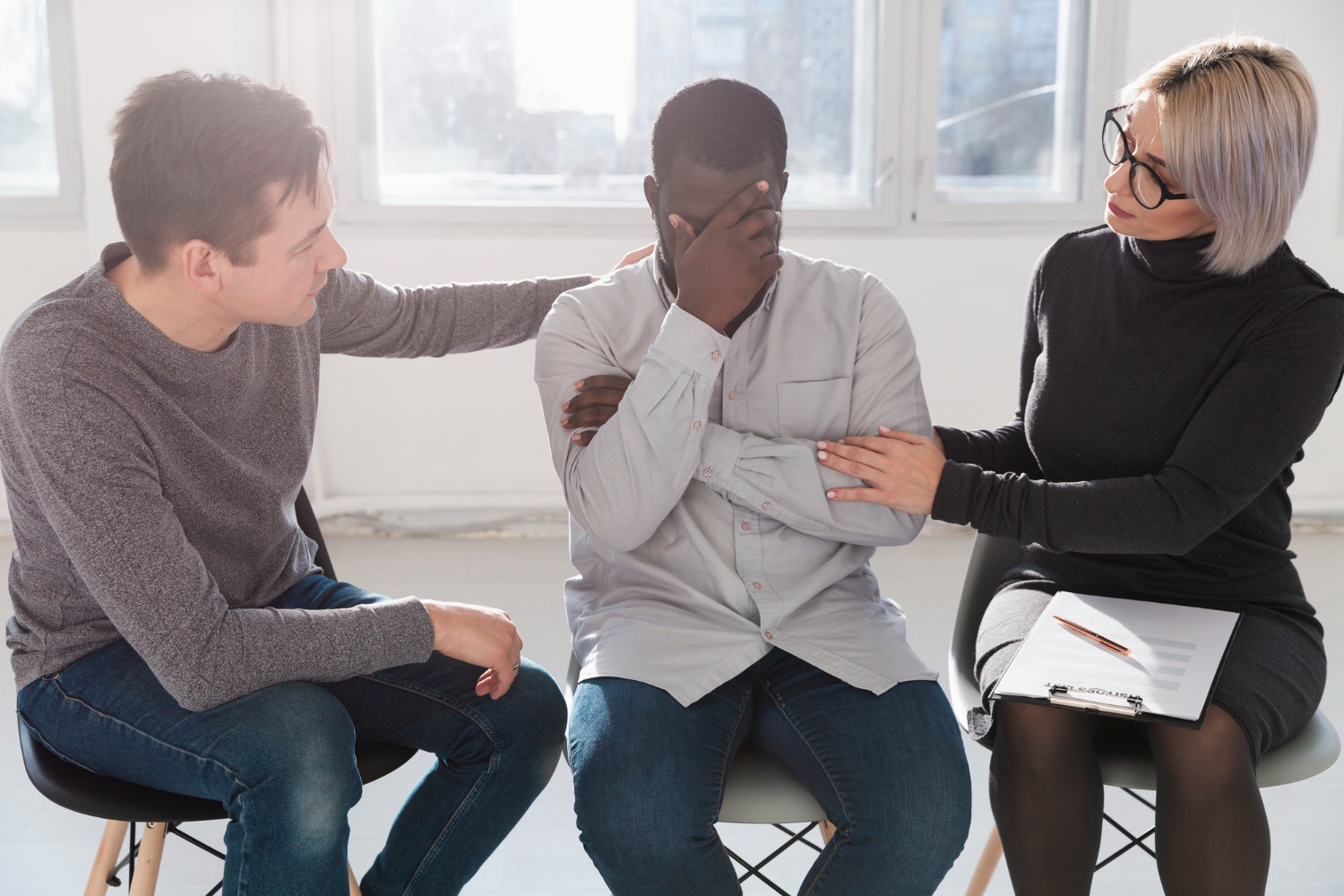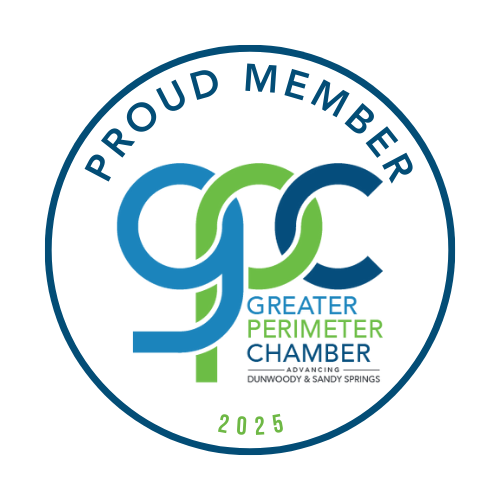Codependency is a complex dynamic that can significantly impact individuals and their relationships. It occurs when someone excessively relies on another for their emotional well-being and self-worth. In a codependent relationship, boundaries become blurred, and one person’s needs are consistently prioritized over their own. This can lead to a cycle of unhealthy behaviors and an imbalance of power.
At Atlanta Recovery Place, we understand how hard it can be to love someone with an addiction, and sometimes it can be even more difficult for those in codependent relationships with an addict. To learn more about breaking the cycle of codependency and fixing your codependent relationship, reach out to a treatment counselor at our Georgia Addiction Recovery Center today.
Signs of a Codependent Relationship
Recognizing the signs of a codependent relationship is the first step toward healing. Some common indicators include:
- Enabling behavior: Constantly rescuing and fixing problems for the other person, even at the expense of one’s well-being.
- Low self-esteem: Feeling unworthy or inadequate without the constant validation and approval of the other person.
- Lack of boundaries: Difficulty asserting personal needs and desires, often sacrificing personal values to maintain the relationship.
- Dependency: Relying on the other person for emotional stability and a sense of identity.
- Control issues: A need to exert control over the other person’s thoughts, feelings, and actions.
The Impact of Codependency on Individuals and Relationships
Codependency can have a detrimental impact on both individuals and their relationships. It can lead to a loss of self-identity, as one’s sense of self becomes entangled with the needs and desires of the other person. This can result in resentment, frustration, and a deep sense of emptiness.
In a codependent relationship, communication often suffers as one person’s needs consistently overshadow the other’s. Trust and intimacy can erode over time as the balance of power becomes skewed. Both individuals may experience emotional exhaustion and a diminished sense of self-worth.
Healing Codependency While in a Relationship
Healing codependency in a relationship requires awareness, commitment, and open communication. Both individuals must be willing to address the underlying issues and work towards creating a healthier dynamic. Here are some steps that can help:
- Self-reflection: Take time to reflect on your behavior patterns and your role in the codependent dynamic. Acknowledge any insecurities or fears that may be driving your codependent behaviors.
- Open dialogue: Initiate a conversation about your identified codependent patterns with your partner. Approach the discussion with kindness, compassion, and a genuine desire for change.
- Seek support: Consider couples therapy or individual counseling to explore the root causes of codependency and learn healthier ways to relate to one another.
Setting Boundaries in a Codependent Relationship
Setting boundaries is crucial when healing a codependent relationship. It helps establish a framework for healthy interactions and ensures that both individuals’ needs are met. Here’s how to set boundaries effectively:
- Identify your boundaries: Reflect on your needs, values, and limits. Determine what behaviors or actions are acceptable and which ones cross your boundaries.
- Communicate assertively: Clearly express your boundaries to your partner, using “I” statements to avoid sounding accusatory. Be firm yet respectful in your communication.
- Enforce consequences: Establish consequences for crossing boundaries and follow through with them. Consistency is essential for maintaining healthy boundaries.
- Respect each other’s boundaries: Encourage your partner to establish and respect their own boundaries. Mutual respect is vital for creating a balanced and healthy relationship.
Self-Care Practices to Support Healing in a Codependent Relationship
Self-care plays a crucial role in healing a codependent relationship. It allows individuals to prioritize their own well-being, build resilience, and establish a strong sense of self. Here are some self-care practices to consider:
- Set aside “me” time: Carve out dedicated time for self-reflection, relaxation, and rejuvenation. Engage in activities that bring you joy and help you recharge.
- Practice mindfulness: Cultivate mindfulness through meditation, deep breathing exercises, or journaling. This can help you become more aware of your own needs and emotions.
- Seek support: Reach out to friends, family, or support groups who can provide a listening ear and offer guidance. Surround yourself with people who uplift and support your healing journey.
- Prioritize physical well-being: Nourish your body with food, exercise regularly, and prioritize adequate sleep. Taking care of your physical health can positively impact your mental and emotional well-being.
Healing a codependent relationship requires self-reflection, open communication, and a commitment to personal growth. Individuals can rebuild trust and foster healthier connections by understanding the signs of codependency, setting healthy boundaries, and cultivating interdependence. At Atlanta Recovery Place, we can help you with supportive therapy and practicing self-care, which are essential components of the healing journey. Our Georgia outpatient drug rehab can support your loved one with mental health therapy and medical treatment.
To learn more about healing codependency in a relationship, contact Atlanta Recovery Place today.









